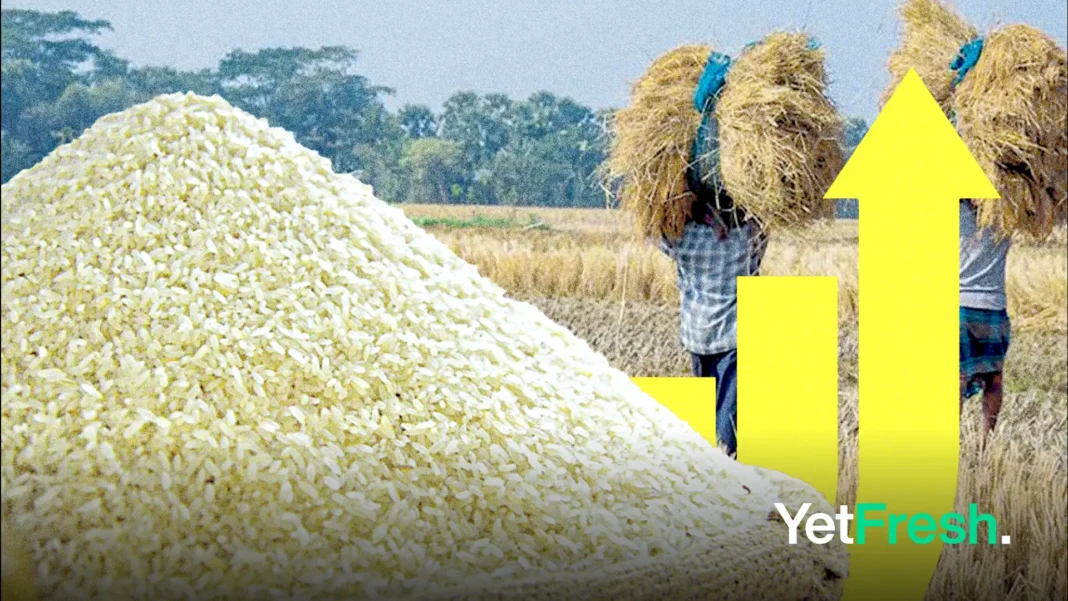No time to read? Just listen to the news!
TL;DR
- Bangladesh’s rice production exceeded 4 crore tonnes in FY 2023-24, eliminating the need for imports due to increased yields from high-yielding varieties.
- The largest growth was seen in Aman paddy, but concerns over future yields exist due to recurrent floods affecting cultivation.
- Despite record production, rising rice prices and food inflation raise doubts about the adequacy of supply.
- Wheat imports surged by 71% as its use increased in food processing and animal feed, impacting rice demand.
Bangladesh has achieved a historic milestone by producing over 4 crore tonnes of rice in the fiscal year 2023-24, marking a 4.1% increase from the previous year. This significant rise in rice production is attributed to the adoption of high-yielding and hybrid varieties by local farmers, reducing the country’s need for rice imports to zero. The Bangladesh Bureau of Statistics reported that the largest growth came from Aman paddy, harvested before the Boro season, which remains the principal rice crop in Bangladesh.
The shift towards modern rice varieties has been a key factor in this production boom, as noted by Wais Kabir, former executive chairman of the Bangladesh Agricultural Research Council. “One of the main factors is that farmers have shifted to cultivating modern varieties of rice. They are growing more high-yielding and hybrid varieties,” he stated. This transformation has allowed Bangladesh to maintain adequate public and private stocks without importing rice in FY24.
However, concerns have been raised regarding the accuracy of production estimates amid rising rice prices and high food inflation, which reached 10.65% in FY24. M Asaduzzman from the Bangladesh Institute of Development Studies expressed skepticism, suggesting that higher prices indicate a supply shortage despite reported production gains.
The country’s reliance on wheat imports has also increased significantly, with imports soaring by 71% year-on-year to 66 lakh tonnes in FY24. This shift is partly due to increased use of wheat in bakery and food processing industries, as well as animal feed.
Looking ahead, challenges such as recurrent floods threaten future rice production, particularly affecting Aman cultivation. Experts warn that if Aman yields suffer due to flooding, Bangladesh may need to consider rice imports. The government is advised to ensure proper management of agricultural inputs like fertilizers to secure future Boro harvests and maintain food security.
Source: The Daily Star




